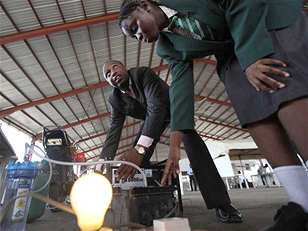Melbourne, Mar 18: Australian Prime Minister Scott Morrison on Wednesday warned its citizens not to travel abroad and banned "non-essential" gatherings of 100 people or more as the government declared the deadly coronavirus, that has infected over 450 people in the country, a "human biosecurity emergency".
Prime Minister Morrison on Wednesday said Australians should abandon all overseas travel because of the coronavirus epidemic. There have been 40 new cases since Tuesday.
Of the 454 confirmed cases in Australia, 43 have recovered and 5 have died from the COVID-19, according to the official figures.
Morrison declared a national "human biosecurity emergency" and ordered a halt to "non-essential" indoor gatherings of more than 100 people, on top of an existing ban on outdoor events of more than 500.
He said, "We haven't seen this sort of thing in Australia since the end of the First World War. This is a once-in-a-100-year-type event," Morrison said.
"Life is changing in Australia, as it is changing all around the world. Life is going to continue to change. The travel advice to every Australian is do not travel abroad. Do not go overseas."
However, schools across the country were still to remain open.
Morrison said Australia should prepare for "at least six months" of disruption as health authorities attempt to get on top of the coronavirus.
"For those of you thinking about going overseas for the school holidays, don’t. Don't go overseas," he said.
Morrison said there would be no short-term, quick fix to deal with the COVID-19 crisis in Australia, and warned that "tens of thousands of jobs" could be lost.
Responding to the panic buying, the prime minister urged the public to "Stop hoarding."
"I can't be more blunt about it. Stop it. It is not sensible, it is not helpful and it has been one of the most disappointing things I have seen in Australian behaviour in response to this crisis," he said.
On Wednesday, the New South Wales recorded a massive jump in new 59 cases as travellers returned from overseas. The cases jumped from 210 to 269 in the past 24 hours, according to the media reports here.
Queensland's total number of confirmed cases stood at 94.
State Premier Annastacia Palaszczuk said it is now "a different world" from just last week.
For Victoria, the Premier Daniel Andrew said the government could also ban gatherings of fewer than 100 people, noting he could not rule out further changes.
Chief Health Officer Brett Sutton said the spike in cases has been due to people who have travelled overseas.
Sutton said that the transmission in Victoria was not because of community transition like Italy.
Sutton has continued to urge people to wash their hands, socially distance and stay home if they are unwell.
"These are critical measures to be applied regardless of the 100 and 500 threshold,” he said.
In Western Australia, Health Minister Roger Cook said four new coronavirus cases have been confirmed overnight, taking the State's total to 35.
McGowan also condemned panic buyers in supermarkets as "jerks, drongos and bloody idiots."
He said there was "plenty of food to go round" and no need for people to buy in excessive quantities.
The outbreak, which first emerged in China's Wuhan city last year, has marched across the globe, infecting 198,006 people and killing 7,948, according to a tracker maintained by the Johns Hopkins University.






Comments
Add new comment